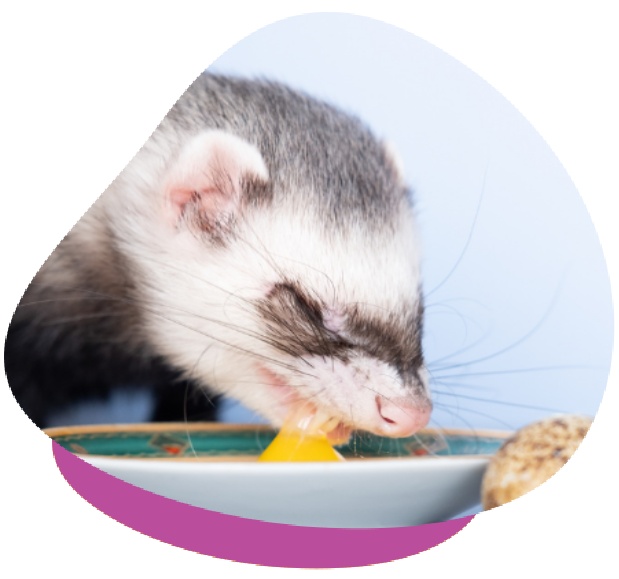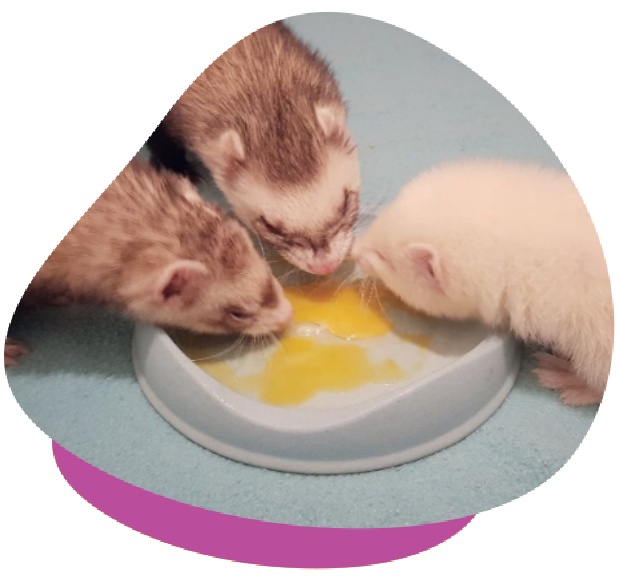Ensuring the well-being of your ferret involves providing a nutritionally balanced diet that aligns with their natural carnivorous instincts. This guide explores various feeding options, emphasizing the importance of protein and fat while steering clear of plant-based proteins.
Ferrets are obligate carnivores (meat eaters) and are not equipped to digest plant proteins. Dietary fibre is not important for ferrets, and they have little need for carbohydrates in their diet. Instead, ferrets require diets high in protein and fat, which is often achieved by feeding either whole prey or balanced raw meals containing muscle meat, bone, and organs. You’ve probably noticed that your ferret has sharp teeth and a strong jaw! Their teeth allow them to shear meat and organs, and their jaw allows them to crush bones. Ferrets also have a short gastro-intestinal tract, which is designed to digest high amounts of protein and fat.





